Primary, secondary education in Valencia 2024
-
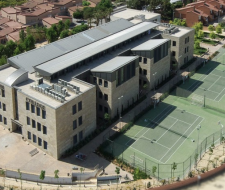 In 2023 - 73.77% of A Level students achieved A* - C
In 2023 - 73.77% of A Level students achieved A* - C SpainValenciaCurrently watching: 2from 7930.00 € / termApply with documents
SpainValenciaCurrently watching: 2from 7930.00 € / termApply with documents -
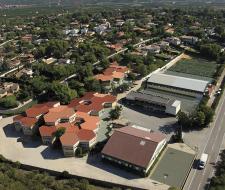 from 28500.00 € / yearApply with documents
from 28500.00 € / yearApply with documents -
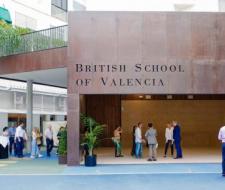 In 2022 - 38,5% of A Level students achieved A* - A
In 2022 - 38,5% of A Level students achieved A* - A SpainValenciaCurrently watching: 1from 612.00 € / monthApply with documents
SpainValenciaCurrently watching: 1from 612.00 € / monthApply with documents -
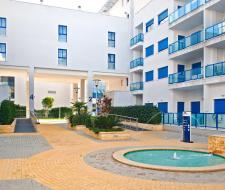 from 6580.00 € / yearApply with documents
from 6580.00 € / yearApply with documents
-
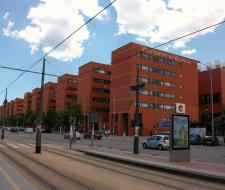 Apply with documents
Apply with documents -
 In 2023 - 73.77% of A Level students achieved A* - C
In 2023 - 73.77% of A Level students achieved A* - C SpainValenciaCurrently watching: 2from 7930.00 € / termApply with documents
SpainValenciaCurrently watching: 2from 7930.00 € / termApply with documents -
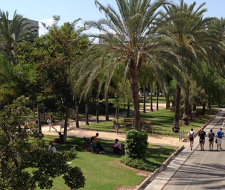 Apply with documents
Apply with documents -
 from 28500.00 € / yearApply with documents
from 28500.00 € / yearApply with documents -
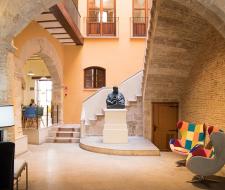 Apply with documents
Apply with documents -
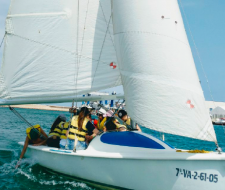 Apply with documents
Apply with documents -
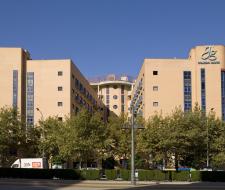 Representatives of more than 40 countries are studying in Colegio Galileo Valencia.
Representatives of more than 40 countries are studying in Colegio Galileo Valencia. SpainValenciaCurrently watching: 1Apply with documents
SpainValenciaCurrently watching: 1Apply with documents -
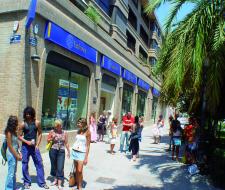 Apply with documents
Apply with documents
Alternative destinations
Education information
Valencia, located on Spain’s east coast, offers a comprehensive and well-structured school education system, attracting many foreign students and their parents. Choosing the right school is a critical decision for parents, especially those planning to settle in Valencia, as it significantly impacts their child's future. Below there are provided main reasons for obtaining primary education in Valencia:
- High level of education and discipline;
- Individual approach and adaptation programs;
- The best technical and material equipment;
- Affordable prices for prestigious European education.
Secondary schools in Valencia – classification
- Public schools (colegios municipales) – tuition-free education is provided.
- Subsidized schools (colegios concertados) – partially state-funded by the state, offering lower fees compared to private schools.
- Private schools (colegios privados) – fee-paying schools, this type of school in Spain is becoming increasingly popular and is considered more prestigious.
- Religious educational institutions (colegios religiosos) – often church-funded, offering free or affordable education, with educational programs including Catholic faith-based subjects.
All secondary schools in Valencia adhere to standards set by the Spanish Ministry of Education and the Generalitat Valenciana, which regulate the academic calendar, curriculum, classroom size, the number of teaching staff, budget allocations.
The schools in Valencia typically use a 0 – 10 grading scale, with 5 as a passing mark. Students receive grades in individual subjects, and these grades are averaged to determine their overall academic performance. Students usually receive numerical grades, and letter grades are less common in the Spanish grading system.
There are two official languages in the Valencian Community – Spanish (castellano) and Valencian (Valenciano), so their study in schools, both public and private, is mandatory.
Secondary education in Valencia – stages of studying
In Valencia, children usually begin their formal education at the age of 3. However, this early stage is not considered mandatory. Compulsory education begins at the age of 6, which means the beginning of primary education in Valencia.
The studying in Valencia takes place in several stages:
- Primary school – (grades 1 – 6);
During this period, the students are introduced to a wide range of subjects, including mathematics, natural sciences, language arts, social studies and physical education. The curriculum is designed in such a way as to provide a solid foundation in various disciplines.
- Secondary school (grades 7 – 10).
At the end of this stage, the student receives a secondary education certificate and decides whether he will continue his studies at a higher school (bachillerato) or enroll in professional courses (formación profesional) and start working in Spain or other countries. In primary and secondary schools in Valencia, children study all the basic subjects such as Spanish, literature, mathematics, natural sciences, including geography and natural sciences, humanities (history, social studies, etc.), physical education, music, and art.
- High school (Bachillerato, grades 11 – 12), the studying isn’t compulsory.
This educational level focuses on career guidance and preparation for university education. Bachillerato course is designed mainly for those students who plan to go to university in Spain in the future.
Students select a specialization in sciences, humanities, or arts, shaping their future academic and professional paths. Depending on this, a school curriculum is formed that prepares the student for the final exam.
The Bacillerato final exam (Selectividad / PAU) is also an entrance exam to the university, since it is the grade obtained that will determine the student's academic future: the higher the final average score, the greater the advantage in choosing a higher educational institution and the chances of admission to the desired university program (Grado). After successfully passing the final exam, the student receives a certificate of full secondary education (Título de bachiller), on the basis of which he has the right to be enrolled in a university in Spain.
Secondary schools in Valencia fees for foreign students
Secondary education in Valencia costs on average from 9,000 to 20,000 euro/ academic year, varying by the educational level:
- Primary classes — from 12,000€/year;
- Middle classes — from 9950€/year;
- Senior classes — from 10,500€/year;
- IB — from 38,000€/year;
- A-Level — from 14,000€/year;
- GCSE — from 9100€/year.
These costs reflect the diverse educational options available in Valencia, catering to a range of preferences and budgets for international students.
The enrolment process in Valencia’s secondary schools
To enrol in schools in Valencia, the foreign students must provide:
- A copy of the birth certificate/passport;
- Photos of the established sample;
- A completed questionnaire with personal information about the child;
- An extract with grades from the school report card;
- Medical insurance;
- Certificate of proficiency in a foreign language;
- Motivation letter;
- Teacher recommendations.
Learning programs-summary information
| Name | Meaning | Equivalent | Min. age | Duration, years |
Next stage | Cost |
|---|---|---|---|---|---|---|
| GCSE | General certificate of secondary education | secondary education (non-accomplished) | 14 | 1–2 | A-Levels | 15,000 USD+ |
| A-Levels | Advanced level | secondary education (accomplished) | 16 | 2 | University | 15,000 USD+ |
| BTEC | Business and Technology Education Board | secondary special education | 14 | 2–3 | University/ work | 15,000 USD+ |
| Oxbridge Preparation | Preparing for Oxford and Cambridge | secondary education (accomplished) | 17 | 1 | University | 15,000 USD+ |
| International Baccalaureate | International baccalaureate | secondary education (accomplished) | 16 | 2 | University | 18,000 USD+ |
| Foundation/ Pathway Year | Preparatory year | admission to the 1st year of university | 17 | 1 | University | 14,000 USD+ |
| NCUK | The Northern consortium | 2 year university | 17,5 | 1 | 2 year University of NCUK | 13,000 USD+ |
| Special Preparation (Medics/Math/Business) | Specialized training | - | 14 | optional | optional | 4,000 USD+ |
| Academic English | Academic English | Language school | 8 + | 6–12 months | School or University | 8,000 USD+ |
Advantages and disadvantages of English schools
| Advantages | Disadvantages |
|---|---|
| The opportunity to enter the best universities in England, USA, Canada, Switzerland, Europe, the world | Expensive |
| High quality of education and academic standards | Strong workload |
| Perfect English after graduation | The need to change the social environment; it takes time to adapt |
| Useful contacts | The difficulty of choosing the most suitable school for the child, requires a qualified specialist |
Top 21 boarding colleges in England 2024
| 1 | Cardiff Sixth Form College |
| 2 | National Mathematics and Science College |
| 3 | Abbey College Cambridge |
| 4 | d'Overbroeck's College |
| 5 | MPW London |
| 6 | CATS Cambridge |
| 7 | Kensington Park |
| 8 | DLD London |
| 9 | King's College St Michael’s |
| 10 | Bellerbys Cambridge |
| 11 | Chelsea Independent College |
| 12 | MPW Cambridge |
| 13 | Bellerbys Brighton |
| 14 | CATS London |
| 15 | St Clare's Oxford |
| 16 | Bishopstrow College |
| 17 | CATS Canterbury |
| 18 | Bellerbys London |
| 19 | Ealing Independent College |
| 20 | Cambridge Tutors College |
| 21 | Abbey Manchester |



